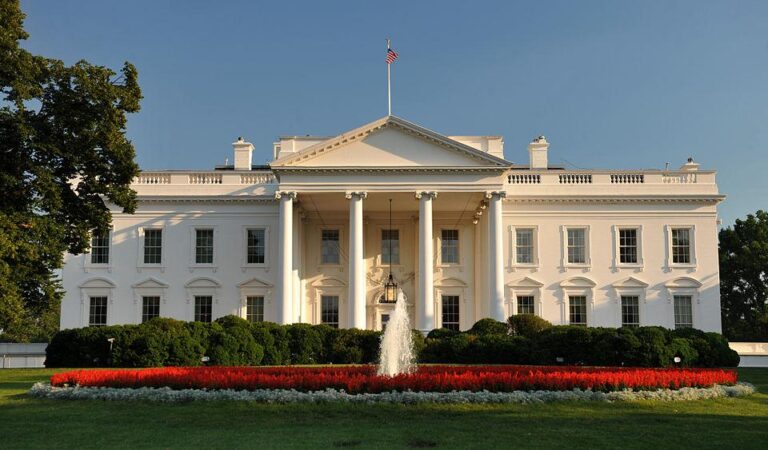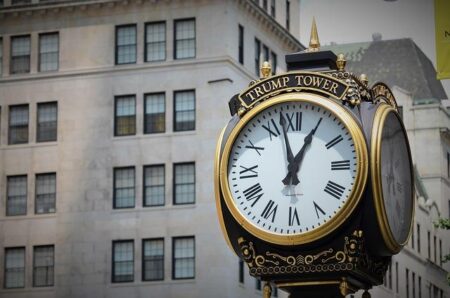The White House has expressed its disappointment over what it describes as a perceived snub of former President Donald Trump from consideration for the Nobel Peace Prize. Officials and allies have pointed to Trump’s diplomatic efforts during his tenure, suggesting that his contributions to international peace have been overlooked. This response comes amid ongoing debates about the criteria and politics surrounding the Nobel Peace Prize selection process.
White House Voices Frustration Over Nobel Peace Prize Decision
The White House expressed sharp dissatisfaction following the announcement that former President Donald Trump was not awarded the Nobel Peace Prize, despite his administration’s diplomatic achievements in the Middle East and historic agreements brokered between Israel and several Arab nations. Senior officials characterized the decision as a significant oversight, emphasizing that key efforts such as the Abraham Accords have substantially reshaped regional dynamics and contributed to global peace initiatives.
Behind the scenes frustrations include:
- The perceived undervaluing of high-stakes diplomatic breakthroughs
- Concerns about the Nobel Committee’s criteria and political inclinations
- Calls for greater recognition of American-led peace efforts on the world stage
| Peace Initiative | Year | Impact |
|---|---|---|
| Abraham Accords | 2020 | Normalization of relations between Israel & UAE, Bahrain |
| Kosovo-Serbia Agreement | 2020 | Economic normalization efforts between rival states |
| North Korea Diplomacy | 2018 | Historic summit between U.S. and North Korean leaders |
Analyzing the Political Implications of the Perceived Snub
The backlash from the White House over the perceived omission of former President Donald Trump from the Nobel Peace Prize contenders has stirred significant debate within political circles. Supporters argue that this oversight reflects a deeper partisan bias within global institutions, while critics suggest it underscores the evolving criteria and diplomatic nuances that define today’s peace accolades. This situation has also amplified discussions on how international awards intersect with domestic political narratives, potentially influencing public opinion and election strategies.
Beyond the immediate controversy, the snub may have lasting ramifications for U.S. foreign policy image and bipartisan relations. Analysts point to several key areas impacted:
- Global Perception: The credibility of U.S. mediation in conflict zones may come under increased scrutiny.
- Domestic Politics: Rival factions could leverage this to rally support or critique current administration policies.
- Diplomatic Engagements: Future peace initiatives might be shaped by lessons drawn from this high-profile exclusion.
| Implication | Potential Impact |
|---|---|
| Public Trust | Decreased confidence in international recognition fairness |
| Political Polarization | Heightened divisions between parties |
| Diplomatic Strategy | Reassessment of peace negotiation approaches |
Recommendations for Managing Diplomatic Relations Amid Prize Controversy
To navigate the diplomatic tension resulting from the perceived snub of former President Trump’s Nobel Peace Prize consideration, officials must prioritize transparency and proactive communication. Establishing open channels with both domestic and international stakeholders fosters a climate of trust and mitigates misunderstandings. Acknowledging concerns while emphasizing ongoing commitments to peace initiatives can help temper narratives that may otherwise escalate discord. Key strategies include:
- Engaging in candid dialogue with Norwegian Nobel Committee representatives to clarify award criteria and selection processes.
- Promoting bipartisan discussion within the U.S. government to present a unified stance on peace diplomacy.
- Leveraging diplomatic forums to reaffirm the nation’s dedication to conflict resolution beyond the scope of awards.
Additionally, a measured approach to public messaging is critical to managing perceptions both at home and abroad. Crafting balanced statements that show respect for the committee’s independence while highlighting the administration’s peace efforts can reduce the risk of exacerbating international sensitivities. Incorporating these elements into a clear action plan can be summarized as follows:
| Action | Purpose | Expected Outcome |
|---|---|---|
| Direct liaison with Nobel Committee | Clarify decision rationale | Reduced controversy |
| Bipartisan consensus statements | Unified domestic front | Strengthened credibility |
| International diplomacy campaigns | Reaffirm peace dedication | Improved global perception |
To Wrap It Up
As the debate over the Nobel Peace Prize unfolds, the White House’s public expression of disappointment highlights the ongoing complexities of international recognition and political legacy. While the final decision rests with the Nobel Committee, the administration’s response underscores the broader implications such awards carry in global diplomacy and domestic politics. Further developments and official statements are expected as the story continues to evolve.




